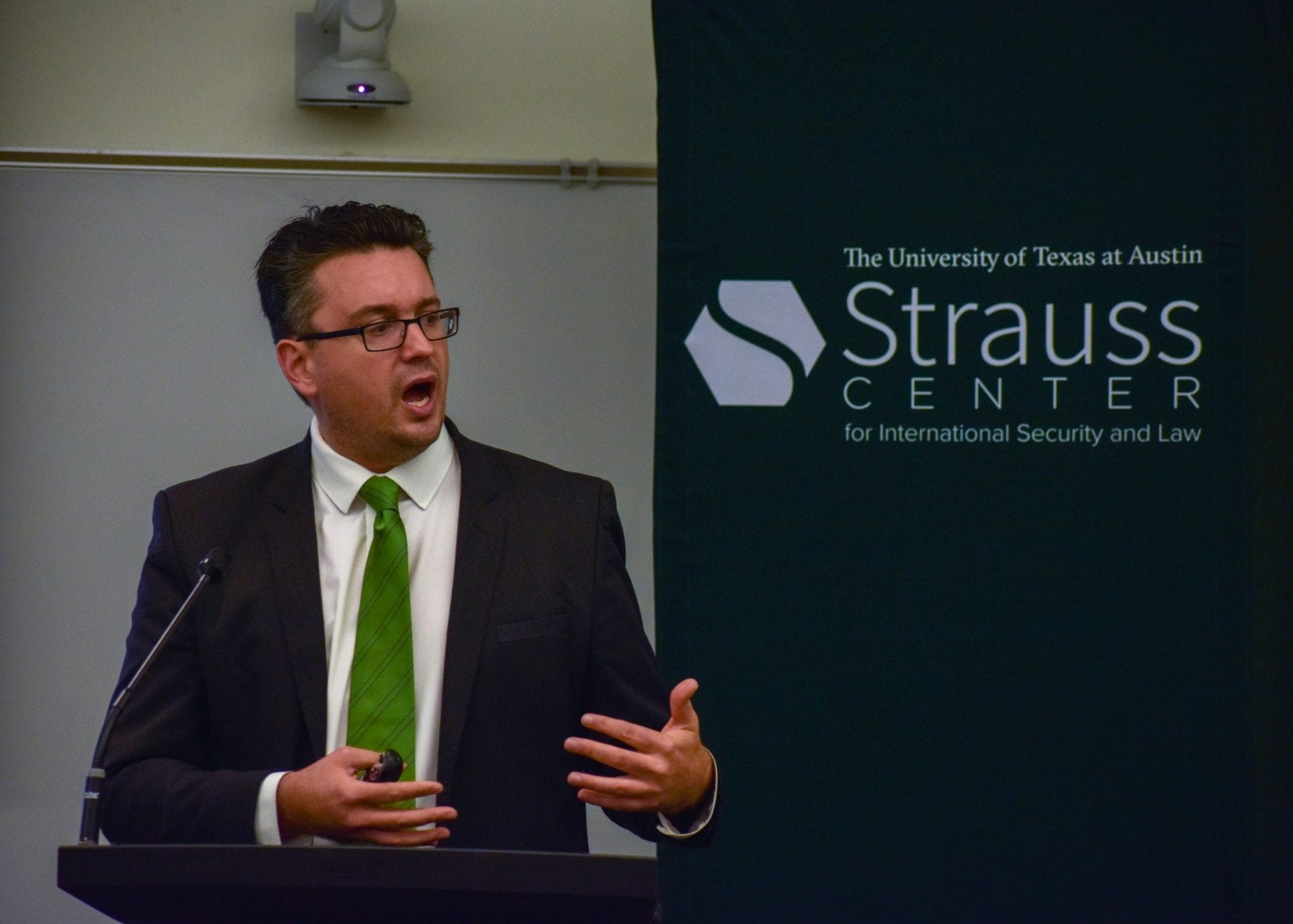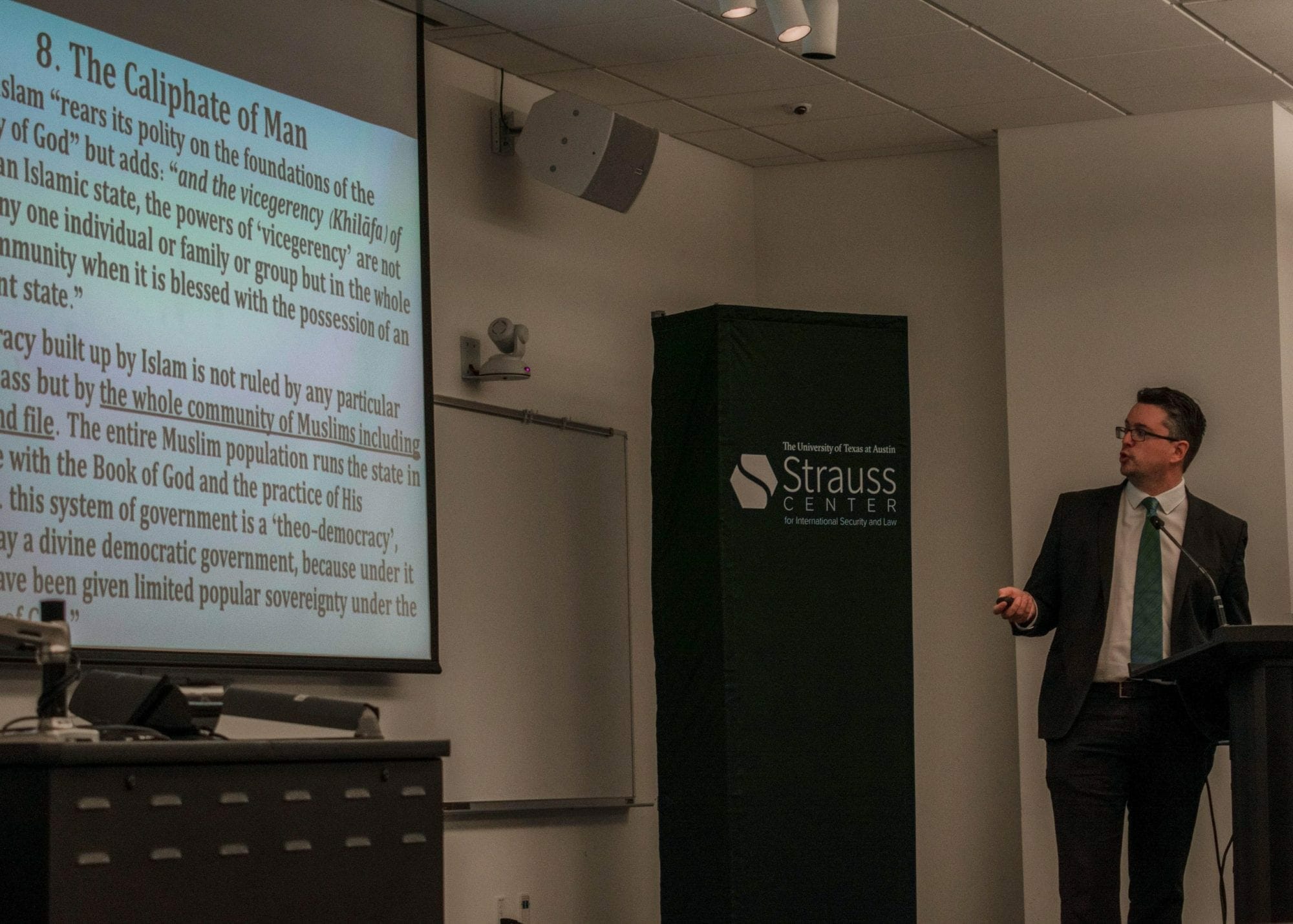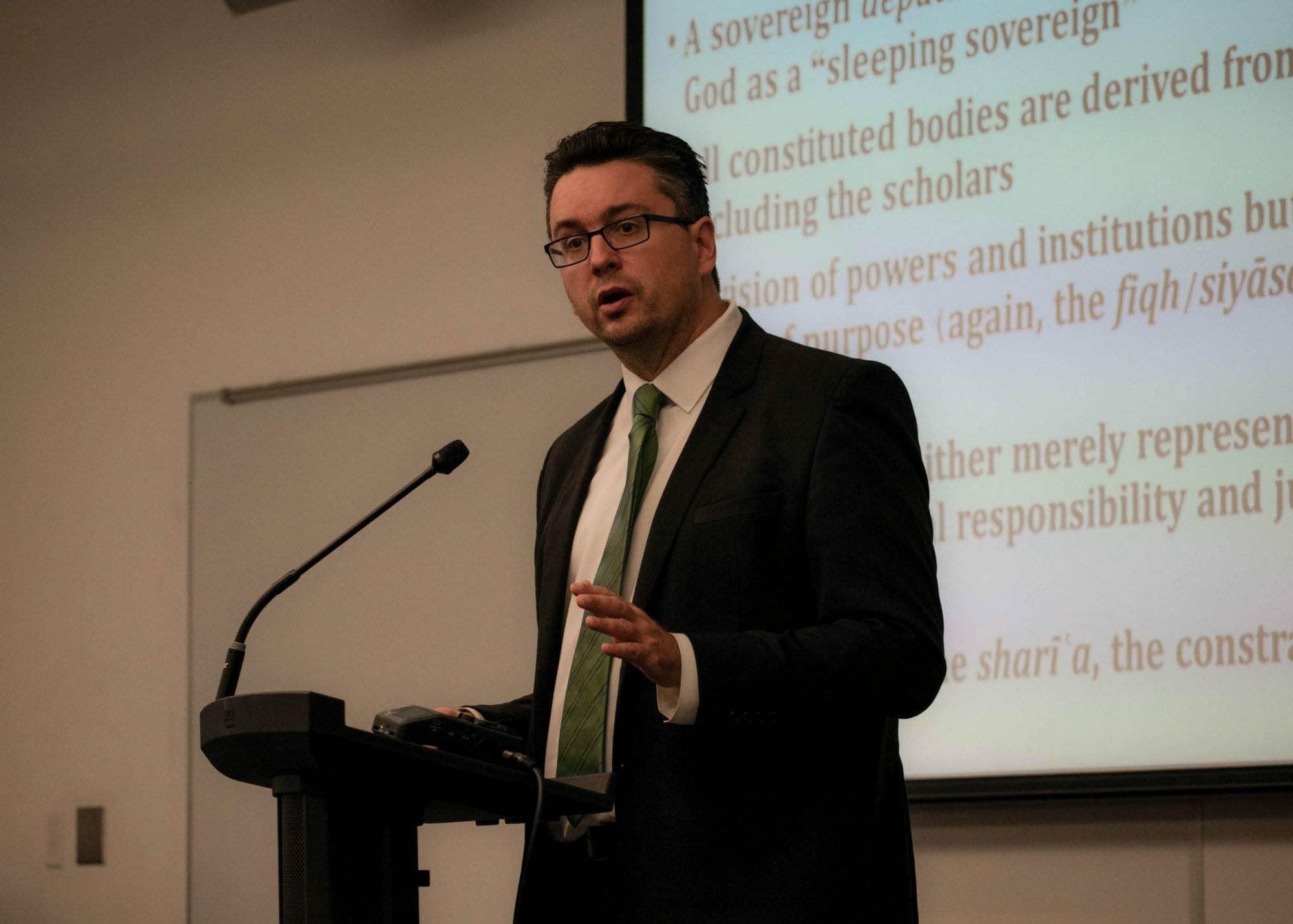By Program

The Caliphate of Man: The Invention of Popular Sovereignty in Modern Islamic Thought
October 14, 2019 | 12:15pm | LBJ School of Public Affairs, SRH 3.122

On October 14, 2019, the Strauss Center welcomed Dr. Andrew March, Associate Professor of Political Science at University of Massachusetts, Amherst, to give a talk on modern Islamic political thought and how it is quintessentially characterized by the commitment to divine sovereignty in politics and legislation. This talk was part of the Strauss Center’s Brumley Speaker Series.
Watch a video of the event here. Photos of the event can be found here.

In his presentation, Dr. March provided a definition of sovereignty in Islamic political thought and introduced the essential components of sovereignty: constituent power, law-making authority, adjudicative authority, legitimate coercive authority, and claim to extra-legal violence. He then explored the three main factors constituting the problem of sovereignty in Sunni Islam: the existense of positive divine law preceding public authority, lack of representatives of that divine law, and the existence of legal authority and political authority.
Looking back at the abolition of the Ottoman Caliphate in the 1920s, Dr. March argued that this stimulated Islamic political thinkers to engage in a conversation about Islam, sovereignty, and governance. One view claimed that Islam does not entail a specific political system, thus allowing Muslims the freedom to design and choose a system based on the realities of their time. Another prominent view advocated for restoring the Caliphate. Some key Muslim thinkers, such as Qutb and Mawdudi, introduced the concept of Islamic democracy in the latter half of the 20th century. Dr. March concluded that this theory is an ideal regime, rather than a practical one.
In today’s political sphere, Dr. March drew attention to the change in Islamic political thought. He suggested that the leader of Ennahda movement, Rached Ghannouchi, as both a political and intellectual leader, is paving the way for a new theory of “Muslim democracy.” While it is still too early to evaluate, Dr. March considered it as an important and significant development in Islamic political thought.

Dr. Andrew March’s research and teaching interests are in the areas of political philosophy, Islamic law and political thought, religion, and political theory. He is a graduate of the University of Pennsylvania and the University of Oxford, where he studied as a Marshall Scholar.
His book, Islam and Liberal Citizenship (Oxford University Press, 2009), is an exploration of the Islamic juridical discourse on the rights, loyalties, and obligations of Muslim minorities in liberal politics, and won the 2009 Award for Excellence in the Study of Religion from the American Academy of Religion.

Dr. March has published articles on religion, liberalism, and Islamic law in, amongst other publications, the American Political Science Review, Philosophy & Public Affairs, Journal of Political Philosophy, European Journal of International Law, and Islamic Law and Society. His new book, The Caliphate of Man (Belknap/Harvard University Press, 2019), explores the problem of divine and popular sovereignty in modern Islamic thought.


